

院长致辞
An Invitation from President
首席评审致辞
An Invitation from principal juror
The NCPA Young Composer Programme was established in 2011, and three sessions have been held since. As China’s top performing arts centre, NCPA is responsible for promoting the development of music composition, searching for outstanding young composers, and staying connected to international music creation. The NCPA Young Composer Programme is a special programme dedicated to supporting and developing art, a fundamental project for China’s orchestral music creation. NCPA encourages young Chinese composers around the world to commit themselves to the creation of music, to explore the evolution of the aesthetics of music composition, to increase the influence of Chinese contemporary works, and to promote the prosperity of the cause of music worldwide.
Since the launch of the NCPA Young Composer Programme in February, 2011, three sessions have been held successfully. 185 composers took part in these events, and 203 works have been collected. The average age of these composers is under 30, and they come from famous music schools in China, France, USA and other countries. Participating works are reviewed by a judging panel consisting of renowned composers, conductors, and performers from home and abroad and performed by professional music groups invited by NCPA. Three winners will be elected for commission works for NCPA, which will be performed in the following years.
The NCPA Young Composer Programme has received support from numerous professional orchestras. 28 performances of new works have been held, reaching an audience of more than 50,000. Over the past 5 years, the NCPA Young Composer Programme has also attracted international attention. A number of music organizations from France, UK, Germany, and USA, among others, have joined the programme. NCPA sincerely invites aspiring young Chinese composers around the world to join the NCPA Young Composer Programme. Let us create a better future for music composition together.
 NCPA has accumulated a great amount of outstanding commissioned works since its inauguration more than eight years ago, and some of these works have been created by young Chinese composers, who have emerged from the NCPA Young Composer Programme launched in 2011 by NCPA.
NCPA has accumulated a great amount of outstanding commissioned works since its inauguration more than eight years ago, and some of these works have been created by young Chinese composers, who have emerged from the NCPA Young Composer Programme launched in 2011 by NCPA.
For China’s music undertakings, creation is its foundation and young people its hope. A subject that NCPA has never ceased to explore is how to improve the influence and reputa-tion of new Chinese works, how to establish an effective commission mechanism, and how to provide a universally applicable experience model of music creation. In 2011, with the support of Mr. Chen Qigang, NCPA introduced the NCPA Young Composer Programme. The Programme provides an expansive stage for aspiring young Chinese composers around the globe to challenge themselves, build confidence, and exhibit their talent. These young composers will also accomplish a mission in the process: exhibiting the profoundness of Chinese culture to the world, expressing the Chinese sentiments that they are born with, and displaying the character and soul of Chinese music.
Over the past 5 years, NCPA has viewed the Young Composer Programmer not only as a long-term talent strategy but more importantly as a public welfare undertaking that will benefit generations to come. All the expenses of the programme are assumed by NCPA. Though without any financial returns, the programme has yielded invaluable composer talent effect and music society effect. Three sessions of the Programme have been held. With careful rehearsals and performances by professional orchestras and discreet selection by Chinese and international judges, a number of outstanding orchestral works that show both individual style and contemporary zeitgeist have been produced. The creators of these outstanding works have been invited to and commissioned by prestigious international festivals such as the Amsterdam Cello Biennale, the International Ibsen Festival, and Vale of Glamorgan Festival. NCPA has also commissioned all the 9 winners of the programme to create new works. Music transcends national boundaries. The prosperity of China’s music creation will certainly give impetus to the development of music worldwide. Here, on behalf of NCPA, I would like to invite international art organizations and orchestras to join the NCPA Young Composer Programme, to understand and share China’s music culture, and to make concerted effort to promote the diversity of world music.
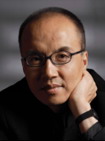 Practice makes perfect, in any discipline, especially in the arts. For any aspiring composer, in addition to continuous studies and producing compositions, it is absolutely crucial to hear their works realized in live performances in order to really perceive their own music as how it was intended to sound. Without this experience of “hearing oneself”, even great talents cannot easily accomplish what they aspire to do. This is the universal problem faced by all young composers, and a luxury they cannot afford because the costs of assembling a full-size symphony orchestra to rehearse and perform any newly composed work for its creator to hear, are simply prohibitive. And very few organizations are resourceful or willing to enough to invest in unknown composers in this year. I would therefore like to express my most heartfelt gratitude towards the NCPA and especially its President, Mr. Chen Ping, for launching the Young Composer Programme with such dedication. The good news is that since its launch the programme has attracted the attention of an ever increasing number of professional international music organizations, making it possible for the finalists not only to create commissioned works for NCPA but also to perform and write music internationally.
Practice makes perfect, in any discipline, especially in the arts. For any aspiring composer, in addition to continuous studies and producing compositions, it is absolutely crucial to hear their works realized in live performances in order to really perceive their own music as how it was intended to sound. Without this experience of “hearing oneself”, even great talents cannot easily accomplish what they aspire to do. This is the universal problem faced by all young composers, and a luxury they cannot afford because the costs of assembling a full-size symphony orchestra to rehearse and perform any newly composed work for its creator to hear, are simply prohibitive. And very few organizations are resourceful or willing to enough to invest in unknown composers in this year. I would therefore like to express my most heartfelt gratitude towards the NCPA and especially its President, Mr. Chen Ping, for launching the Young Composer Programme with such dedication. The good news is that since its launch the programme has attracted the attention of an ever increasing number of professional international music organizations, making it possible for the finalists not only to create commissioned works for NCPA but also to perform and write music internationally.
The NCPA Young Composer Programme is perceived as a project of basic infrastructure for orchestral composition in China. Its mission is not merely to produce several outstanding pieces of music. More importantly, it gives young composers the opportunities to listen to their own works during the selection and performance process. Through this project, these young musicians will gain experience, be inspired, learn to persevere, and build their careers upon this experience. Now in its fifth year, the programme is becoming a symbol of music composition for young Chinese composers and a dream they cherish, as what we have hoped when we initiated the programme. Let’s work hard together, for the sake of realizing the dreams of these young composers, and for making the programme even better.
| 2011.01 | The first session of the NCPA Young Composer Programme was officially launched. |
| 2011.12 | The first NCPA Young Composer Programme Final Evaluation Concert was held at NCPA Concert Hall, and 6 works stood out from the 75 collected works. |
| 2012.04 | The second session of the NCPA Young Composer Programme was officially launched. The number of the adjudicators increased from 7 to 10. |
| 2012.06 | The first prize winner of the 2011 NCPA Young Composer Programme DU Wei’s Niaoqingsi, the Awakening of a Dream was performed by the Philadelphia Orchestra at NCPA Concert Hall under the baton of maestro Charles Dutoit. |
| 2013.01 | The NCPA Young Composer Programme was officially announced the partnership with Radio France. |
| 2013.03 | Special Concert for International Women’s Day 2013: NCPA Young Composer Programme Commissioned Works’ Concert 2011 was held in NCPA Concert Hall. |
| 2013.05 | The NCPA Young Composer Programme was officially announced the partnership with Vale of Glamorgan Festival. The first prize winner of the 2011 NCPA Young Composer Programme DU Wei’s Niaoqingsi, the Awakening of a Dream was performed by the MDR Sinfonieorchester Leipzig at Gewandhaus Concert Hall in Germany by conductor Kristjan Järvi. |
| 2013.07 | The second NCPA Young Composer Programme Public Concert Performances started, and it is the first time that 12 works had been selected into the public concert compared of only 8 works before. |
| 2013.12 | The second NCPA Young Composer Programme Final Evaluation Concert has been held at NCPA Concert Hall, 6 works stood out from the 61 collected works. |
| 2014.02 | The third session of the NCPA Young Composer Programme was officially launched. |
| 2014.07 | The first prize winner of the 2nd NCPA Young Composer Programme XIAO Ying’s The Cloud on the Wishful Side was performed by BBC National Orchestra of Wales at BBC Hoddinott Hall in Cardiff Bay by the young conductor Ducan Ward. |
| 2015.02 | The third NCPA Young Composer Programme Public Concert Performances started. 12 works was selected to give public performance in 10 concerts individually. |
| 2015.05 | The commissioned works by XIAO Ying and Ye Yanchen (the winners of 2nd NCPA Young Composer Programme) were premiered respectively during the Vale of Glamorgan Festival in Cardiff. |
| 2015.12 | The NCPA Young Composer Programme has collected 203 works so far, and 185 young composers took part in this programme. |
| 2015.12 | The third NCPA Young Composer Programme Final Evaluation concert will be held at NCPA concert hall, and by far 6 works stand out from the 67 collected works. |
| Composing the Future, to be continued... | |
All works shall be delivered to the Organizing Committee from March 1, 2016 to December 1, 2016 (Postmark Deadline).
1. One (1) clearly filled-out original copy of Application Form of NCPA Young Composer Programme;
2. One (1) biography less than five hundred (500) words in Chinese or English;
3. One (1) photocopy of personal identification documents;
4. One (1) photocopy of relevant diplomas;
5. Two (2) standard (2-inch) recent, colored passport photos;
6. Two (2) copies of the full scores of the submitted work;
7. CD(MP3/WAV)
1. All works shall be in the form of clearly edited, legible full scores printed and bound on A3 paper, not bearing
any special mark or personal information about the applicant on its cover or elsewhere in the score except the
title and introduction of the submitted work.
2. All works shall be original. Any adaptation/orchestration/re-orchestration of existing works shall be excluded.
3. Only one work shall be submitted by each Applicant.
4. All works shall be completed after 2011, and shall not win any prize in any other competition. or receive any
public performances.
5. The duration of the work shall be between 10 and 15 minutes and the estimated duration shall be clearly
marked on the upper left corner of the first page of the full scores.
6. The detailed instrumentation of the work shall be clearly listed on the title page of the full scores.
7. All works shall be written for symphony orchestra. Concerto, chamber music or vocal music are not accepted.
The instrumentation must not exceed the following notes:
-Standard instruments:
Woodwind 3 (including piccolo)/ 3 (including English horn)/ 3 (including bass clarinet)/ 3 (including contra bassoon);
Brass 4/3/3/1;
Strings 16/14/12/10/8;
-Optional instruments:
Percussion (to include standard instruments): 5 players maximum;
Celesta 1 maximum/ harp 1 maximum/ piano 1 maximum;
A maximum of 3 traditional Chinese instruments used as part of the orchestra and not in the role of soloists are also allowed.
All works shall be mailed no later than the postmark deadline to the following address:
Organizing Committee of NCPA Young Composer Programme
2 West Chang'an Avenue, Xicheng District, Beijing, China
Postal Code: 100031
Delivery of application materials and works in person is unacceptable. All application materials and works shall be at the disposal of NCPA during and after the competition and will not be returned to the applicant.
Applicants shall be acknowledged with the receipt of the application materials and works via email.
For further information about the Programme please visit NCPA's official website www.chncpa.org or contact us via:
TEL: +86-10-66550167
FAX: +86-10-66550988
EMAIL: youngcomposer@chncpa.org
After the closing date for entries, the jury shall review and evaluate all qualified works. The reviewing process will consist of:
1. Preliminary Evaluation: December 2016, when maximum of 24 works will be selected for the next round.
2.Re-evaluation: January 2017, when a maximum of 12 works will be selected for the next round.
3.Public Concert Performances: from February to November 2017, NCPA will present the 12 pieces works select
ed at public concerts. A maximum of 6 works will be selected for the next round after the Recording Evaluation.
4.Final Evaluation: December 2017, NCPA will host the Final Evaluation and Award Concert, featuring NCPA Or
chestra performing the 6 shortlisted works. The jury shall then choose First, Second and Third Prize winners,
who will be commissioned further by NCPA to create new works.
NCPA will sign contracts related to commission with the winners, which include all relevant details such as the copyright information of the commissioned works. The payment of commission for each winner will be 50,000 RMB. The commissioned works will be premiered at NCPA in future concerts by professional orchestras.
During the concert rehearsals the NCPA Orchestra will vote for the Work beloved by Instrumentalists Prize and present once more the prize-winning work during the 2017-2018 season.
All related cost for applying to the Programme, including but not limited to the postage for mailing the application materials and the cost of copy of the full scores, production of full scores and open scores in electronic format shall be borne exclusively by the applicants.
For the works that passed the Preliminary Evaluation, all costs related to the concert performances, including but not limited to the reproduction of performance materials, rehearsals and performances, will be exclusively borne by NCPA. For the candidates that enter the rounds of Public Concerts and Final Evaluation, if they are required to come to Beijing, their travel expenses to and from Beijing, and accommodation expenses in Beijing will be paid by NCPA.
1.The candidate shall be the author of his/her work submitted, and shall be the sole copyright holder of the
work. Applicants shall make a clarification in the Application if he/she has concluded a long-term agency contract with any of the publishers and guarantee that the work will be premiered under the Programme prior to its publication.
2. Applicants who enter the round of Public Concert Performances shall agree to grant the NCPA the following
rights at no cost:
a) the right to use the scores, recordings, videos and any other form of audio and video products of the works for non-commercial purposes;
b) the right to present the works in concert free of charge at NCPA, for two years from the December 10, 2017 of the Programme.
NCPA will discuss and sign contracts with winners on legal matters including the ownership of the copyright of the commissioned works.
3.All candidates that have submitted their works in accordance with the Articles shall be regarded as having acknowledged and agreed with the stipulations and requirements set out in the Articles.
4.The candidates shall ensure the authenticity of the submitted information and works. If any disinformation, or breach of any of the Articles was discovered, NCPA has the right to revoke the candidacy at any time.
5. The Articles and its appendixes are also written in Chinese, with English translations. If there is any discrepancy between the Chinese and English versions, the Chinese version shall prevail.
6. The jury’s decisions are final. If the jury decides that fewer than three works are worthy of being awarded the prizes, they are at liberty to decide not to choose three final winners. NCPA reserves the rights to make changes related to the Programme at any time, and will announce any such changes in good time on the official website of NCPA.
2011
2012-2013
2014-2015
2011
2012-2013
2014-2015
Born in 1980, Wang Zhiyi is an emerging young composer from China. Being featured in many significant events, Wang's music works established his reputation in both academic and commercial music industries.
Born in 1980, Wang Zhiyi is an emerging young composer from China. Being featured in many significant events, Wang's music works established his reputation in both academic and commercial music industries.
As one of the core members in the music creative team of 2008 Beijing Olympic Games, Wang composed various music works for the Opening Ceremony, including Fanfare for the Ceremony, the works of orchestration: the theme song You and Me , duet song Dream of the Five Rings, Ritual Music, and Lighting of the Olympic Cauldron.
Before joining the Olympic music creative team, Shanghai Opera House appointed Wang as the Composer-in-Residence (2006 – 2008). During this time, he accomplished a great number of works, and Mr. Zhang Guoyong, President of the Shanghai Opera House praised him as "an excellent skillful composer".
Wang has received numerous awards and honors, including the top prize in the Premio Franz Liszt International Competition for Composers, honor certificate awarded by Beijing Olympic Organizing Committee, laureate of Grawemeyer Fellowship, etc. His works have been performed by many prestigious orchestras, ensembles and soloists.
Besides his composing talent, Wang is a superb pianist as well. He held several piano concerts dedicated to his works in China and USA in the past few years, and he also appeared in various concerts and music festivals as guest pianist, especially premieres of new works. The University of Louisville honored him with a prize during his graduate studies in recognition of his excellence in piano performance.
Wang received Bachelor’s and Master’s degrees in composition from Oberlin College Conservatory and the University of Louisville respectively.
There are countless configurations, either tranquil or rough, when a river runs through. Shaped by different terrains, routes and climates, a river can present colorful phenomena and create different landscapes. While thousands of lives are relying on the prosperity of river systems, however, some rivers are facing the destiny of disappearance due to contrived harm as well as natural transformation. Therefore, the moments in a vanishing river are extremely precious and fragile as it may never reappear again. The music piece captures the diverse aspects of the vanishing river, and reflects a space of imagination in which the river continues to flow.
Shi Fuhong, teacher in the Composing Department of Central Conservatory of Music. She graduated from Toronto University in 2009, with a Doctor’s degree in composition. In 2000 and 2005 she graduated... ...
Shi Fuhong, teacher in the Composing Department of Central Conservatory of Music. She graduated from Toronto University in 2009, with a Doctor’s degree in composition. In 2000 and 2005 she graduated respectively from Central Conservatory of Music and University of Victoria in Canada with a Bachelor’s and a Master’s degree in composition. She has studied with many world renowned composers, including Tang Jianping, Chen Yi, Guo Wenjing, Su Xia, Zhou Wenzhong, Chen Qigang, James MacMillan, Salvatore Sciarrino, Steve Reich, Murray Schafer, and Gilles Tremblay.
Her works have won numerous awards, including the sixth annual Taiwanese Symphony Orchestra Composition Competition in 1997, Traditional Music Composition Competition of the Council for Cultural Affairs of Taiwan in 2002, Karen Kieser Music Award in Canada in 2007, and Ensemble Contemporain de Montréal Composition Competition in Canada in 2008, etc.
She has worked with many orchestras worldwide, including Vancouver Symphony Orchestra, Ensemble Contemporain de Montréal, Queen of Puddings Music Theatre, Orchestre de la Francophonie Canadienne, Taiwan Symphony Orchestra, Hong Kong Chinese Orchestra, and Guangdong National Orchestra, among others.
Concentric Circles is a piece for large orchestra. The inspiration and structure of the music come from one of the most ancient Chinese philosophy classic texts I Ching. It consists of four consecutive movements: I. Tai Yin; II. Shao Yang; III. Shao Yin; IV. Tai Yang. The music emphasizes the movement, energy, and tension of singular notes. The ratio and balance between pause and music are influenced and inspired by the ideology and aesthetics of Chinese calligraphy.
The first movement tries to use rustling texture and delicate tone and an imagery of ancient Chinese landscape paintings to create an atmosphere that is vast, spacious, and elegant. The second movement aims to seek transparent and gorgeous musical colors interpreted by the orchestra. The echo produced by the combination of the di erent instrumental groups depicts undulating ripples and the growth rings of trees. Brass and bass instruments are used in the third movement. Multi-layer texture melodies and special tone colors portray vigorous and dynamic religious dance rituals. In the fourth movement, tempest-like musical elements are used till the end of the music, trying to paint the scene in which Kuafu, the legendary figure in Chinese mythology, is exerting all his strength to chase the sun.
Liu Chang was admitted into the Composing Department of the Middle School attached to China Conservatory of Music in 2004, and admitted with distinction into the Composing Department of Central Conser... ...
Liu Chang was admitted into the Composing Department of the Middle School attached to China Conservatory of Music in 2004, and admitted with distinction into the Composing Department of Central Conservatory of Music in 2007, studying under Professor Jia Guoping who is a renowned composer and doctoral tutor. In 2008 , Liu Chang’s work Jingle Princess for violin and piano premiered in the concert hall of the Central Conservatory of Music to high acclaim. In May, 2010, Liu Chang’s composition I Believe stood out among the 420 candidates of the Second Songs Collection of the Universiade 2011 in Shenzhen and won the “Prize of Excellence” in the event. Her works include: piano trio Wings of Colors, string quartet Gong, twelve-note serial music Swirling Bubbles, wood pipe quintet Zaandam Boat and piano quintet A Lonely Sunny Day.
Women are like owers, and blooming owers like women. In the perspective of a woman, there are more beauty and sincerity in this world than anything else, and they are more important than anything else. The presentation of the music originates from an inner voice: the ower asks the water and the light that are so full of hopes and brightness, what is the meaning of life? When she learns the answer, she changes into petals that y and ll the air. There are ve passages of presentation in the music:
[Posture of the Flower]
Introducing the concept of “acoustic eld”, the music displays the static beauty of plants. The work is based upon A, with 6 extended tonal pentascale upward to form the essential sound of the music.
[Asking] There will always be questions as long as there is life. [Water and Light]
Either in the West or in the East, water and light are the common vehicles of beliefs and wisdoms of the humankind. They are also the vital elements, like parents, that foster the growth of plants. The vibra-harp is integrated into the orchestra, representing the status, nature, and commonness of these two things.
[Meaning of Life]
What is the meaning of life? The music progresses to the fixed rhythms of the eighth note on the timpani, which creates a fixed mode momentum out of the “horizontal exterior hearing”, which again influences the stereometric structure of “vertical interior hearing”.
[Petals Filling the Air]
Multi-line extended composing technique is used to present a multidimensional image instead of a single at image. The nale returns to the initial sentiments of the music, transcending all bloom and splendor and giving gratitude to the bliss of life!
Born in 1978, Du Wei studied piano and composition with her father since childhood. In 1996 she enrolled in the Central Conservatory of Music in Beijing, where she majored in composition with Shi Wanchun, Fa. ... ...
Born in 1978, Du Wei studied piano and composition with her father since childhood. In 1996 she enrolled in the Central Conservatory of Music in Beijing, where she majored in composition with Shi Wanchun, Fan Naixin and Guo Wenjing. She obtained her Master’s degree in 2005 under the mentorship of Chinese master composer Mr. Guo Wenjing.
Both her works Stained and Exotic Perfume were commissioned by Radio France, and Stained was awarded in 2003 the third prize of TMSK Liu Tianhua Prize of China National Chamber Music Competition. She also wrote many other works such as Eye of the Heaven commissioned by Shanghai Chinese Orchestra, Color of Love commissioned by Royal Danish Ballet, Golden Lotus commissioned by Hong Kong Arts Festival, Soul of Sword commissioned by National Ballet of China and The Interruption Of a Dream-New Legendary of Peony Pavillion, etc.
Du Wei created also various movie and TV play music works.
A falling plum petal, a fleeting dream, enough to exhaust her poor life. Du Liniang, the most vulnerable character of Chinese literature; the most sensible, tender and feminine soul ever seen. In an endless lingering of the ink and wash, in an endless struggling of love desire, she believed, the whole world was in that plum.
Niao Qing Si · The Interruption Of a Dream features enchanting singing, swaying rhythm of Kunqu opera. It is about the hidden desires sealed with love, incapable of realizing whether it’s a dream or the reality.
Xiao Ying began piano study at the age of 3. After graduation from the Middle School affiliated to the Central Conservatory of Music, Xiao entered Ecole Normale de Musique de Paris in 2006, studying compos ... ...
Xiao Ying began piano study at the age of 3. After graduation from the Middle School affiliated to the Central Conservatory of Music, Xiao entered Ecole Normale de Musique de Paris in 2006, studying composition and orchestration under Michel Merlet. One year later, Xiao received an advanced composer diploma. In the same year, Xiao was admitted into the Conservatoire Supérieur de Paris, majoring in composition under Canat de Chizy. Xiao also studied orchestration, counterpoint, music analysis and electronic music there. In 2010, Xiao Ying was admitted into the Conservatoire National Supérieur de Musique de Paris and studied with Gérard Pésson.
Xiao Ying’s work Reflet d' un reflet for two percussion bands was awarded the first prize in the 1st Lyon Percussion Composition Competition in 2009. The music premiered in the same year in Cannes Licorne Theater, and was published by music publisher François Durand in 2010.
Xiao often works with Parisian chamber music orchestras. In 2008, the commissioned work Rappler à rapel for flute and piano was performed in Ecole Normale de Musique de Paris; in 2009, Doom clock commissioned by Paris Intercontemporain Orchestra for 14 string instruments was performed in Cité de la Musique in Paris.
Xiao Ying has composed music for many short films and TV videos.
Baihua Shenchu is a hutong’s name, which means “deep in the blossoms”. Located in the jurisdiction of Shichahai sub-district of Xicheng District, it starts on east from Huguosi East Lane and extends to Xinjiekou South Avenue on west.
Once, a couple surnamed Zhang bought a eld in the small lane south of Xinjiekou, and they were living on planting vegetables. Later, when they became rich they started to grow flowers. Year after year, many kinds of owers could be found in their garden, which were also decorated with the rockeries, ponds and thatchy pavilions. Their charming flower garden became a quiet and elegant place and attracted many literates to appreciate the blooming owers.
However, Baihua Shenchu is no longer the tranquil place it once was and the fragrance of owers once there can only be found in people's memory.
The work Baihua Shenchu is not only a sketch about this alley, but also the sign with emotion facing the transformation of the city’s aspect in the modern time. Did it lose the rivalry against urbanization in the progress of time? Or was it but a glance on our path?
I have passed it several times, thus I found the subject for the new work of mine.
In this music, you can hear the occasional ringing of bicycle bell coming out of the alley, chirping of birds in the morning, the sound of cicada in the summer, and melody of famous Peking opera excerpts played by the chinese traditional instrument Jinghu, sometimes near and sometimes far away. On the contrary, urban noises coming from beyond the alley bombard the ear from time to time, creating a fusion of clutter and harmony.
The writing of this piece for Sheng is based more on western composing ideology. As Westerners call this instrument 'breath organ', the circular breathing technique and the dense chords are extensively used in music.
Jin Qiuyue, Manchu, was born in Beijing in 1989. She learned piano, dance, singing from childhood in Beijing Children's Palace and BTV Art Ensemble "Seven color light", and later enrolled in Oriental Song and... ...
Jin Qiuyue, Manchu, was born in Beijing in 1989. She learned piano, dance, singing from childhood in Beijing Children's Palace and BTV Art Ensemble "Seven color light", and later enrolled in Oriental Song and Dance Ensemble. In 2001, she was admitted to the Middle School attached to the Central Conservatory of Music and studied composition with Liu Changyuan, Chen Changfeng and Du Yong. She has been the chorus conductor for many times in the school. In 2007, Jin Qiuyue attended the Central Conservatory of Music where she majors in composition and studies with Guo Wenjing.
During her studies, she created many works and received numerous awards, including Folk Toy for solo violin (awarded the excellence prize of the “Palatino”Music Composition Competition, the script has already been published); chamber music Spring in the Desert (awarded the third prize of the 14th Wenhua Music Composition held by the Ministry of Culture of China; art song Three Poems by Hai Zi (the bronze prize of the 2009 “Palatino” Music Composition Competition), etc.
In early 2010, she wrote the Ballad of Mulan commissioned by the “211” Excellent Chamber Music Project. The work premiered in the same year and was highly acclaimed. Furthermore, she created music for film and drama. Invited by Zhu Yibing, famous cellist, conductor and founder of the Cello Philharmonic Ensemble, she adapted the theme song You and Me of the 29th Olympic Games for eight young cellists of the Cello Philharmonic Ensembles.
I sketched this work in the late autumn, and it was accomplished by the early summer. Through the whole journey, the scenery and my mind melted in water, full of twists and turn up and down. I chose three of the most memorable-worthy moments to express my feeling by the different types of the writing techniques and the shaping of the musicality.
Born in 1986, Jiang Yu is currently pursuing a Master’s degree in music composition at the University of Missouri-Kansas City Conservatory of Music and Dance, where she studies with Chen Yi and Zhou Long. ... ...
Born in 1986, Jiang Yu is currently pursuing a Master’s degree in music composition at the University of Missouri-Kansas City Conservatory of Music and Dance, where she studies with Chen Yi and Zhou Long. She received in 2010 a Bachelor of Arts degree in composition from Central Conservatory of Music in Beijing, China, where she studied with Liu Yuan for ve years. Her pieces have been performed in various concerts. Electronic music work Kaleidoscope was performed at EMM music festival this October.
Out of Tao, One is born; Out of One, Two; Out of Two, Three; Out of Three, the created universe.
—— Laozi “Tao Te Ching” Chapter 42 (Translator: Lin Yutang, 1955)
The Tao can be considered the root of all things. The nature of those who launched the original motive force has an unlimited potential of creativity and vigor of all things between heaven and earth.
The launch of creation follows the inherent law. It is a unique road containing the two, which are yin and yang. Qi, the culmination of yin and yang intersects to animate the forms of the world.
The music starts at the simplest three single tones and slowly changes into a vast complexity. Then it becomes more dynamic and its range is broadened as it reaches the climax; then it returns to the original motive.
Xiao Ying comes from a musical family. He graduated from The Middle School affiliated to the Central Conservatory of Music in 2006. Xiao started to study with Mr. Michel Merlet and received the Diplome Supe... ...
Xiao Ying comes from a musical family. He graduated from The Middle School affiliated to the Central Conservatory of Music in 2006. Xiao started to study with Mr. Michel Merlet and received the Diplome Superieur at Ecole Nomale de Musique de Paris in 2007. He then entered CNR DE PARIS, studying with Canat De Chizy. In 2010,Xiao began to study under the direction of Mr.Gérard Pesson in Conservatoire National Superieur de Musique de Paris.
His major works include "Face Off", which was composed for a string quartet; Piano concerto with Chamber Orchestra — "Bracelet Vert"; "Shang Ye" for piano and flute; "HÜZÜN" for eight cellos and electronic music "Empty Room". His work "Le Reflect de Reflect" for two sets of percussion won the first prize in the first Lyon percussion composition competition. This piece was premiered in Cannes Licorne Theater in 2009, and published by French music publisher Durand in 2010. Xiao has worked with Paris Chamber Orchestra many times. His piece "Appel a Rappel" for flute and piano which was under the permission of Conservatoire National Superieur de Musique de Paris received big success. In 2011, his piece "Flowers Deep Hidden" was selected as one of the top six works in the first NCPA Young Composer Programme. In 2012, Xiao worked for the French Independent Theatre director Froment Xavier, and composed for his work which was based on Dostoevsky's novel Underground Notes. This work premiered the same year in Paris ve underground independent theaters. Mr. Xiao's work "Crushed Leaves" for the Pipa and the trumpet was comissioned by the Lyon National Conservatory of Music. At the same year, in 2012, Xiao has founded the French Young Artists Association LEZARTS with his friend Rafael Carosi, and participated in the rst Young Artists Music Festival as a guest composer. The concert's theme was proposed by Mr. Xiao to pay tribute to the minimalism. His commissioned work "Rose Punishment" for small chamber music premiered at the festival's opening concert. The festival also staged a lot of his works which were composed while he was in France.
Xiao also collaborated with many film and theater directors, and wrote for many film soundtracks in France.
The piece is divided into ve movements. Every movement is based on individual independent musical language, from atonality to pan-tonality and then form pan-atonality to tonality. The manifestation mode of Pipa is not independent from the band, but blended into orchestral harmony. Discordant harmony and sole melody are both presented in the song, which is suitable to the theme, as if a traveler who is looking for himself with rm faith.
Li Bo is an accomplished young composer who has gained extensive recognition for his work through success in several international competitions and music festivals. Born in Jilin, China in 1988, he studied piano ... ...
Li Bo is an accomplished young composer who has gained extensive recognition for his work through success in several international competitions and music festivals. Born in Jilin, China in 1988, he studied piano and composition at an early age and in 2004 attended the middle school attached to Central Conservatory of Music,studying in composition department. Since 2007 he studied under Professor Tang JianPing in the Central Conservatory of Music and was awarded a "Bao Gang" National Scholarship for outstanding academic achievement to study an MA degree in 2011.
His compositions cover a variety of styles and forms, and have been performed in a number of contemporary music concerts. Many of his works have won numerous awards in the international well-known composition competitions
In recent years, his music has been highly recognized by winning several world composition competition prizes. His works were performed in music festivals and publishing.
His achievements include: Paul Hindermith Prize 2012; China’s highest competition"Wen Hua" gold prize 2011; the first prize of "Con Tempo"international composition competition.
Encirclement was inspired by the Chinese Pipa masterpiece Ambushes from Ten Sides. As a representative of the Chinese classical music, it presented an overall view of a decisive battle in the 202 B.C. when two major armies of the time, Chu and Han tried to defeat each other to rule the ancient China. Many years ago when I was only a beginner of composition, I was completely absorbed by its power and grandeur, as well as the vividness. Now, in looking back on this inspirational piece, some humanistic connotations hidden underneath the tunes caught my eyes.
The term “ambushes from ten sides” was in nature a military strategy to surround and annihilate the enemies, who on the other hand can only put up a desperate ght to get through the siege. To me, this situation resembles our life. Once under stress or adversity, one may feel like being ambushed, whereas only with unyielding faith and relentless endeavor can he overcome obstacles to triumph in the end.
This piece, Encirclement, starts with a passage of tremendous momentum, and a classic opening motif of Ambushes from Ten Sides is introduced by the piano in the eighteenth bar of the piece so as to bring about the variations and original creations made by the composer. After another passage full of power and conflicts, the music begins to emanate a mysteriously tranquil atmosphere in passage E, with short but delicate phrases alternating in di erent parts in a faintly- discernible term as if a person is constantly searching and striving in a di cult situation.
Based on the Ambushes from Ten Sides, Encirclement develops into a more realistic piece to reflect on the present day. Despite the fact that few people nowadays have ever been in a battlefield, the daring spirit and perseverance have always been indispensible in our seemingly humdrum life. In creating this piece, I also motivate myself to break through encirclement coming with this complicated times and blaze new trails that belong to myself.
Liu Jian was born in Guangzhou in 1984, and started learning the piano and painting since she was very young. She got her Bachelor degree in Xinghai Conservatory of Music, studied The History of Western Mu... ...
Liu Jian was born in Guangzhou in 1984, and started learning the piano and painting since she was very young.
She got her Bachelor degree in Xinghai Conservatory of Music, studied The History of Western Music with Professor Huang Hong and Composition Theory with Professor Xu Xueji and Associate Professor Li Fang. She got her Master degree in Shanghai Conservatory of Music, studying composition with associate professor Lu Huang. From 2010, she began to work for her Doctorate in composition in Shanghai Conservatory of Music under the guidance of professor Yang Liqing, and received a Doctor’s degree in 2013.
Beside the Li River II is composed for western orchestra and is based on a folk song from Hunan –“work song of boatman”.
The natural structure of the Chinese boatman’s work song – introduction, Pingshui song, see the beach, go up to the beach, go over the beach , go down from the beach – is adopted here as a leading thought. A variety of means of imitating the sounds are used to exhibit the grand natural landscape and demonstrate the strength together with the courage of the brave person.
“Between” has a double meaning. It not only means that the composer is inspired by the moment while the sky and water are merging at the horizon beside the Li River, but also means that the composer is trying to integrate different thoughts and techniques, and trying to make something new as basing on the synthesis of Chinese and western styles and ancient and today’s manners.
A native of Sichuan, raised in Xinjiang Uygur Autonomous Region, Zhou Juan graduated from the Central Conservatory of Music and University of Missouri – Kansas City. She joined the faculty of the Central C... ...
A native of Sichuan, raised in Xinjiang Uygur Autonomous Region, Zhou Juan graduated from the Central Conservatory of Music and University of Missouri – Kansas City. She joined the faculty of the Central Conservatory in 2010. She was awarded the Golden Bell Award of the Association of Literature and Arts, 17th National Music Composition Award of Ministry of Culture, ASCAP Foundation Morton Gould Award, GEDOK Fuch-Award and many others. Her major works include orchestral works End of the Earth, Far Far Away, Second Language, Before “Curtain!” (symphonic band), My Spiritual Garden (Uygur artists and chamber orchestra), two operas Wu Kong and Nightingale, Fate Makes a Choice (musical theater), two Peking Opera incidental music Golden Lock and Sing by the River Flower, Oedipus the King (play), Love Cantata, Wind (chorus), Water Your Memory (jazz band), large ensemble Ming and Say “Bye”, Cycle of Life (song cycle), two string quartets, and many chamber works.
Second Language is one page from my music diary.
It was a summer night after rain in 2007. I, accompanied by three suitcases lling with my memories and dreams, arrived in Kansas City – a new stop of my life.
Before long, I could not nd myself in between the two di erent kinds of culture and language. But I fell in love with Jazz. Maybe it was a mistake. I am female, Chinese, even from desert, a Muslim region. I was way too far from Jazz. I refer to that period my “period of lonely strangeness.” It is named after a mourning dove, who resided next to my window, and whose strange song had woken me up every morning since the rst dawn of my arrival. This bird’s song is lonely but filled with hope, which perfectly echoed my feelings at that moment. The work starts with the long-short-short motive of the bird’s song, which is transformed into di erent forms and moods drastically to imply the change that had quietly unfolded within my mind over the period.
Cai Dongzhen is a Chinese composer with the Korean minority. He was born in 1981 in Yanbian Korean Autonomous Prefecture, Jilin province.
Cai Dongzhen is a Chinese composer with the Korean minority. He was born in 1981 in Yanbian Korean Autonomous Prefecture, Jilin province.
Cai Dongzhen studied music composition at the Central Conservatory of Music from 2001. His teacher of composition included Professor Du Mingxin and Hao Weiya.
And he received his Master of Music in Composition degree in 2010 with Professor Hao Weiya.
During the graduated study, as the teacher assistant, he taught in the Central Conservatory of Music and composed a lot of pieces, such as orchestral works, the music for TV series, ballet and music for dance. Besides, he participated in many music activities and composed several works. For example, Guangxi Folk Songs Festival, 2009/2013 CCTV Spring Festival Gala, Asia Art Festival, and so on.
The Waking of Insects for Orchestra and flute is the opus that is made by the combination between orchestra and the flute. Everything on earth is recovered, the insects are awakened, the nature is moved with joy to greet the arrival of spring. The return of warmer weather and thunder of Spring awakened hibernating insects underground.
This opus mainly describes the scene of nature in spring that all of the species are full in life. Through the dialogue between orchestra and the traditional musical instrument, it reflects composer’s pursuit of a beautiful life, with the hope of arousing more love towards the nature from people and protecting the harmony of the nature.
Ye Yanchen was born on November 12, 1992 in Chongqing city of China.He was fascinated by serious music since his childhood. He went to Russia and then began to study music composition in 2008. Until n... ...
Ye Yanchen was born on November 12, 1992 in Chongqing city of China.He was fascinated by serious music since his childhood. He went to Russia and then began to study music composition in 2008. Until now, he has been studying in Nizhny Novgorod State Conservatory (Academy) named after M.I. Glinka and has been under the tutelage of Russian meritorious artist Boris Gezelev. In his career of music composition, Ye has completed 16 works, include chamber music, vocal and other genres, and Ye began to focus on creative works for orchestra, which increases every year rapidly. In addition, Ye is in favor of developing Chinese ethical elements, and has received many positive reviews in the field. Also, he is characterized by holding Chinese traditional elements in a personal style.
Main awards: 2013 U.S. Golden Key International Composition Competition "Young Artist Award"; The third Prokofiev Young Composer Competition "Gold Prize "; "Award of Excellence" by Ministry of Culture.
Main works: Brass Quintetto, Op.11, Suite for Wind Symphony, Op.12,Morning of Bita Lake for Symphonic Orchestra, Op.14
Bita Lake, the highest plateau in the lakes in Yunnan province, located in the northwest of Yunnan province Shangri-la, was inhabited by a variety of rare birds. The scenery of four seasons there is beautifully quiet. The composer’s work about “the morning of Bita Lake" is composed of two continuous movements: rstly, the brume. secondly, the wind and rain dance scenery portray vivid and natural avor, full of young and mysterious color. It is the work of modern music rarely heard, based on the motivation of only three sounds and has contracted tonal harmony, rich delicate orchestration. The composer does not search for only new music techniques, on the contrary, in the light landscape painting he attaches more importance to the spirit of energy through the full development of rhetoric and material music. This kind of music is simple but full of tension that depicts the beautiful painting of the scenery at the same time, the desire for nature and soul free. It is the shock for the people living in the noisy 21th century; Enjoying the simplicity and nature arouses the reflection. the most beautiful and the most precious of life is simply refreshing natural and spiritual freedom.
Li Mengneng was born in Hunan, and started learning the piano and accordion since he was young. In 2006, after graduated from ECNU, Li studied composition at the Central conservatory of Music ... ...
Li Mengneng was born in Hunan, and started learning the piano and accordion since he was young.
In 2006, after graduated from ECNU, Li studied composition at the Central conservatory of Music in Beijing before he was admitted to enter the Ecole Normale de musique de Paris, in the classe of Michel Merlet. In 2011, Li entered the CRR de Paris, studying instrumental composition with Edith Canat de Chizy, electronic composition with Denis Dufour. At the same time, he also studied Ecriture with Thomat Lacôte at the CRR d’Aubervilliers, Analyse Musical with Michael Levinas at the Conservatory National Supérieur de la Musique et Dance de Paris(CNSMDP). In 2013, he was integrated in the class of Philippe Hurel at the CNSMD de Lyon.
In 2012, the works of Li « Aphasia »for the quintet, « Nocturne »for the barytone and oboe, « Three pieces » for large orchestra won the first prize of Diplôme supérieur de composition of ENMP as well as SACEM prize for him.
In 2013, Li was selected in Young Composer Programme of NCPA. In the mean time his electronic work for the « Orphée » project and his orchestra work « Xing Tian » were played in Paris and Beijing.
in 2014, Li was awarded the prize of Nadia et Lili Boulanger (for year 2015 - 2016), which awards normally only one person every year in the composition domain in France.
In 2015, Li won the first prize for the Diplôme National Supérieur Professionel du Musicien(DNSPM) of CNSMDL, as well as the Diplôme de la Musicologie in the Université Lumière Lyon-II, and his work « Manjusaka » was selected in the Young Composer Programme of NCPA for the second time.
During his studies in France and in China, Li has worked with different musicians who came from different countries, and the chamber music ensemble such as Alternance, The sound research Center such as Tempo Reale, the orchestra, for instance, China NCPA Orchestra, Beijing Orchestra etc. His quintet « Floating world », Octet for the brass «Black water », « Fusang »for the soprano and ensemble, « Ran »for alto solo, « Poem » for piano etc., were already played in different concert halls at different places.
For me, Death was never the end of an individual exists. Between the pain of birth and death, between hope and memory, gladness and sorrow, acquisition and loss... life enriched extremely our imagination. As part of life, death should be described, because it was not just a realm of darkness. Who we loved and passed away, must have walked through a road to the netherworld, by the side of which, Manjusaka bloomed like The ocean of red flowers. They must have crossed over the bridge of San Tu River which just like the beautiful rainbow...In fact, music is the most proper artistic form to describe death.
I used a patch of MAX/MSP(Bach) for interpolation between the complex chord and the mode chord to get the materials of pitch, then created «harmonic melody», and «melodic harmony».This work is full of «contrapuntal homophony» and «homophonic contrepoint».
Logic and structure of music are still important in my work. Besides, I tried as usual to find a balance point of expression and perception.
Techniques are always so cold. Only the sound, the perception and the resonance of ears are precious.
This work lasts 11 minutes and it is divided into three parts which are: The road to the netherworld, San Tu River, Manjusaka.
This work is dedicated to whom we loved and missed.
Peilei Shang started learning piano at the age of five. She entered to The Central Conservatory of Music in 2009, and studied composition under Prof. Guo wenjing and Prof. Jia Guoping. Now she is in Hochschule... ...
Peilei Shang started learning piano at the age of five. She entered to The Central Conservatory of Music in 2009, and studied composition under Prof. Guo wenjing and Prof. Jia Guoping. Now she is in Hochschule für Musik und Theater Hamburg for exchange study of the master degree.She has composed a lot of pieces with various instrumentation and styles.Her major works include orchestral works Evolution,The Poetry From Afar,Chamber music Fantasia,Trace to the source,Variation,The dark night,Chorus work The Message Of The Wind,dancing music My kite,My Child.
Her works have been performed in Beijing,Shanghai,Vienna and Salzburg.She was awarded the third prize of the Composition Competition for Voiloncello in Shanghai Spring International Music Festival and the winning score has been published.In 2012, she was selected to participate in the Schoenberg Academy held in Vienna on behalf of her school.She won the second prize of 2013 Mozarteum International Composition Composition and the winning piece was performed at Solitär Concert Hall in Salzburg. She also won the second prize of senior group in 2rd Luxembourg Artistes en Herbe International Composition Competition.
Eight Immortals are eight Taoist immortals who are very famous in China. Each immortal has a very distinct character and represents a kind of image. This piece try to describe the character of every immortal and divides into five movements:
I Lv Dongbin: Lv lived in Tang Dynasty and represents the ancient literati of china.The first movement is mainly reflects the elegant and peaceful temperament of the literati and their insights into life.
II Zhang Guolao and Lan Caihe: Zhang represents the elder in the eight immortals. He often rides a white donkey, like a kidult. Lan represents the young people and street artist in the eight immortals. He always hands clappers, singing after drunk as if he was mad. The second movement expresses the humor and wisdom of Zhang and also use the solo Violin to describe the scene of Lan’s singing.
III Han Xiangzi and He Xiangu: Han represents the image of gifted young master,who is always graceful and romantic, handing a Chinese flute called Xiao as a feature. He Xiangu is the only woman in the eight immortals. She is beautiful and tender. The third movement is full of romance. Flute is the main instrument troughout the movement as the symbol of Han Xiangzi.
IV Cao Guojiu and Li Tieguai: Cao is originally a royal, so he represents power and wealth in eight immortals. Li is a lame person who walks with a stick and looks like a beggar. By contrast, the fourth movement put the two opposite character together, making music constantly transform between serious and funny.
V Zhong Liquan; Zhong represents the image of generals in eight immortals. He is a general in Han Dynasty who is brave,and has a red face and robust body. The fifth movement is passionate and also use many features of Chinese Opera,such as "tight playing while slow singing" in the second part.
The piece starts with calm and end with passion, trying to portray the vivid and colorful image of eight immortals.
He Wei is a teacher of Art&Culture of Tianjin University of Sport.He graduated from the Shenyang Conservatory affiliate high school、Shenyang Conservatory of Music and China Conservatory.He followed Profes... ...
He Wei is a teacher of Art&Culture of Tianjin University of Sport.He graduated from the Shenyang Conservatory affiliate high school、Shenyang Conservatory of Music and China Conservatory.He followed Professor Wu Jixue, Professor Guo Ming, Professor Guen Kilho studied composition.
His orchestral work "Eight colors" has been elected to the Fourth Session of the Chinese Symphonic Music Season. in May 2012 by the Shenzhen Symphony Orchestra premiered in Beijing.His chamber music "Spectrum" won the third prize of American Fifteenth "Music From China" International Composition Competition,2007 by the winds and Orchestra premiered in New York Symphony Space. Chamber music "Liyue" finished third in the "Song of Confucius" National Composition Contest . Besides, in 2010 the works as Shanghai Conservatory of Music Chamber textbooks published by the Shanghai Conservatory of Music Publishing. Another chamber music "Wu", "Su", "Yi", "Second String Quartet", "Memories· Spring morning"; art song "Memories · Spring", "Chuzhou Stream"; mixed chorus "Fuyi "and so on.
This “Nocturne” was inspired by Whistler's oil painting "Nocturne: Blue and gold".
On the basis of color music theory, I combined the color factor of the art and the language of music. In other words, I transferred these colors and painting techniques into a music piece, presenting a music picture to the audience. For example, “black, white, gray”, and “Intermediate colour” as music factors. Therefore, my music would help the audience achieve an entirely new experience of auditory, visual and psychology: the changes of the light.
Lin Xipeng, born in Shenyang of China in 1984, started to learn music with his father when he was young. And then he learned piano from Youri Drozdov who is a Russian pianist. In 2004, he studied in the depa... ...
Lin Xipeng, born in Shenyang of China in 1984, started to learn music with his father when he was young. And then he learned piano from Youri Drozdov who is a Russian pianist. In 2004, he studied in the departments of the composition and the piano in the Shanghai Conservatory of Music. His composition teachers are Professor Chen Qiangbin, Zhou Xianglin and Ye Guohui, His composing-technique-theory teachers are Professor Ying Liqing,Xu Mengdong,Jia Daqun,Wen Deqing,Chen Musheng,and so on. At the same time, Professor Su Bin taught him piano. In 2012, he became a graduate student in Shanghai Conservatory of Music, major in composition, following Professor Ye Guohui.
The main technique of writing symphonic poem Flowers And Birds in The Greenwood is pointillism,and apply exquisite processing on the timber at the same time. The melody slowly emerges in the background of chromaticism,and its characteristic is separation,sounding fragmented,and resembling a piece of an elegant landscape painting.
Technically,whole work employs a group of five-note motive as its core. The whole work exquisitely develop and vary around the core of the motivation, connect and fuse several different speeds paragraphs, which integrates the entire piece in an unified material.
The duration of the work: approximately 11 minutes.
ZHANG zhiliang, a yong master of composition who teaches in the Si Chuan Conservatery of music. Zhang's works covers many subjects, so does the types of his works,including solo,chamber music,symphon... ...
ZHANG zhiliang, a yong master of composition who teaches in the Si Chuan Conservatery of music. Zhang's works covers many subjects, so does the types of his works,including solo,chamber music,symphony and so on,many of which have won awards and been performed in Chengdu,Shanghai,Beijing,Wuhan, Hong Kong,USA,Czech, Swiss,New Zealand,etc. When composing,while pursuing national characteristics and culture,Zhang builts diversified modern natures in his works.by combining with contemporary music language, composer displays the structure and connotation in a logical way, so as to form a both rigorous and exquisite style.
The work is based on a Tang dynasty poem entitled Cloud by Lai Hao, and the pitch materials are adopted from Three Stanzas of Plum-blossoms – a popular work during the Tang dynasty for the Chinese instrument Guqin. These are used to create a contemporary musical language. A work that does not focus on creative image, but rather implies something poetry chant, constantly inspiring people to picture and contemplate deeply. The work with the Chinese character “Pei” attached after are even more fitting personification in the poem Cloud. To show the original gracious character of Plum and the fun-filled melodies of Ancient Chinese literati, the composer re-interprets in another light Lai Hao’s most influential ode to a cloud, in order to show his sentiment, connection and philosophy of the poet’s verse. The work is divided into four sections (performed continuously), with each corresponding to each line.
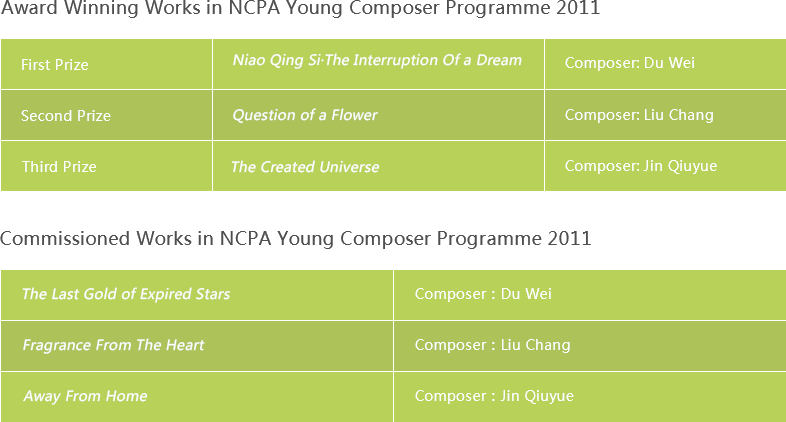
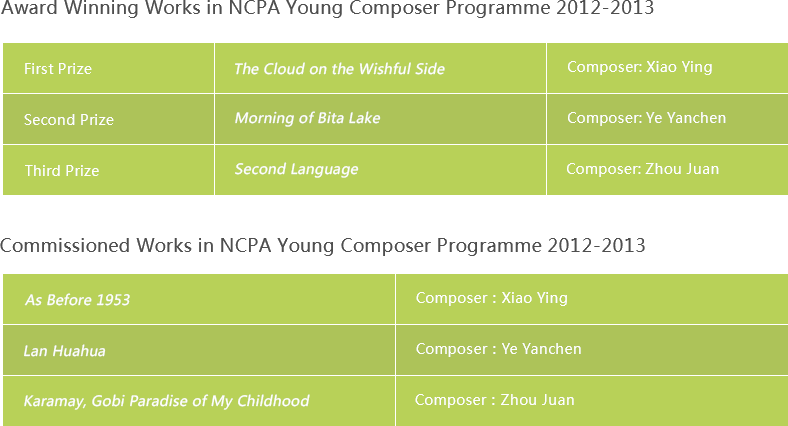
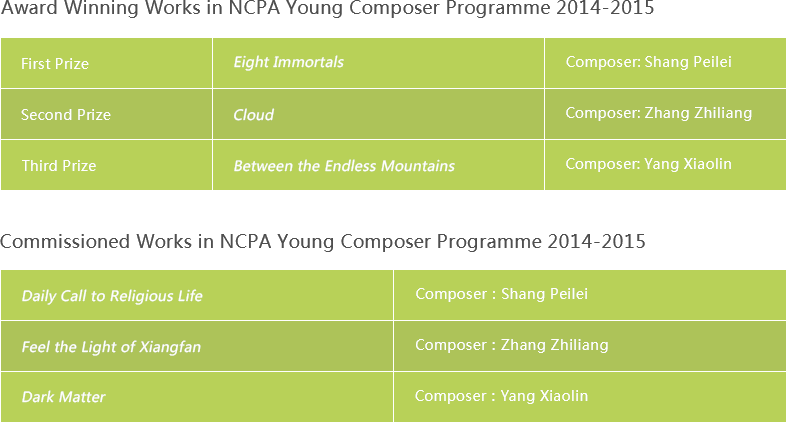
任何一门技艺都要经过千锤百炼才能炉火纯青,管弦乐作曲家的成长除了不断地学习和写作之外,最重要的就是能够听到自己作品的演奏,从而建立正确的听觉经验。没有这个“听到自己”的过程,再大的天才也写不出好作品,或者只能成为一位写旋律而欠缺多声思维的“曲作家”。这就是学习作曲的奢侈和困难。奢侈在于每首作品需要近百名音乐家的合作才能听到效果,困难在于很少有人愿意在名不见经传的年轻人
青年作曲家计划是中国管弦乐音乐创作的基础工程,它的宗旨绝不仅仅是出一两部好作品,更重要的是在遴选和演奏的过程中给年轻人创造聆听自己的机会。通过这个工程,让年轻作曲家建立经验,引发思考,磨炼意志,开拓未来。青年作曲家计划诞生五年了,它逐渐变成了中国青年作曲事业的标志和他们心中的梦。这其实也正是国家大剧院在初建这个计划时的期许。让我们携起手来,为实现各位青年作曲家的梦想,为把计划办得越来越好而共同努力。
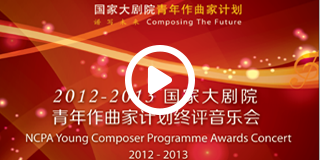
2012-2013 NCPA Young Composer
Programme Award Concert

2014-2015 NCPA Young Composer
Programme Award Concert
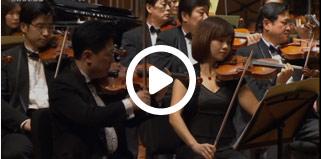
Commissions of the First NCPA Young Composers Programme Premiere on International Women’s Day
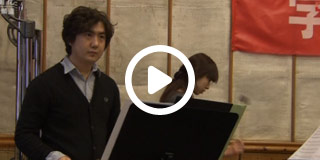
Away From Home,Composer: Jin Qiuyue
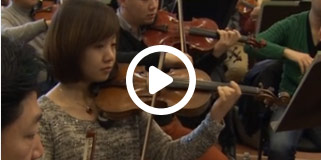
Fragrance From The Heart,Composer: Liu Chang
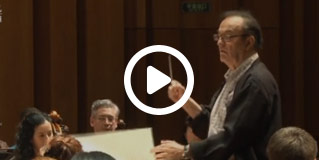
The Last Gold of Expired Stars,Composer: Du Wei
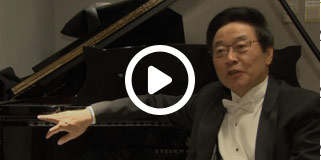
From ”NCPA Young Composer Programme” to”the Symphone Spring of China”
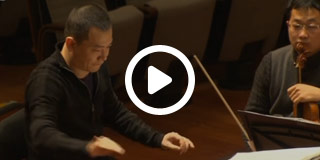
Beside the Li River II,Composer: Liu Jian
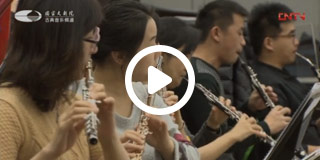
Encirclement ,Composer:Li Bo
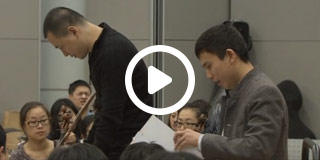
Morning of Bita Lake ,Composer:Ye Yanchen
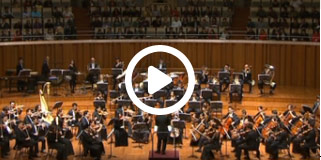
Narat Rhapsody,Composer:Jia Yue
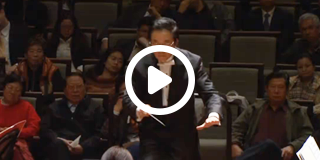
Niao Qing Si·The Interruption Of a Dream,Composer: Du Wei
